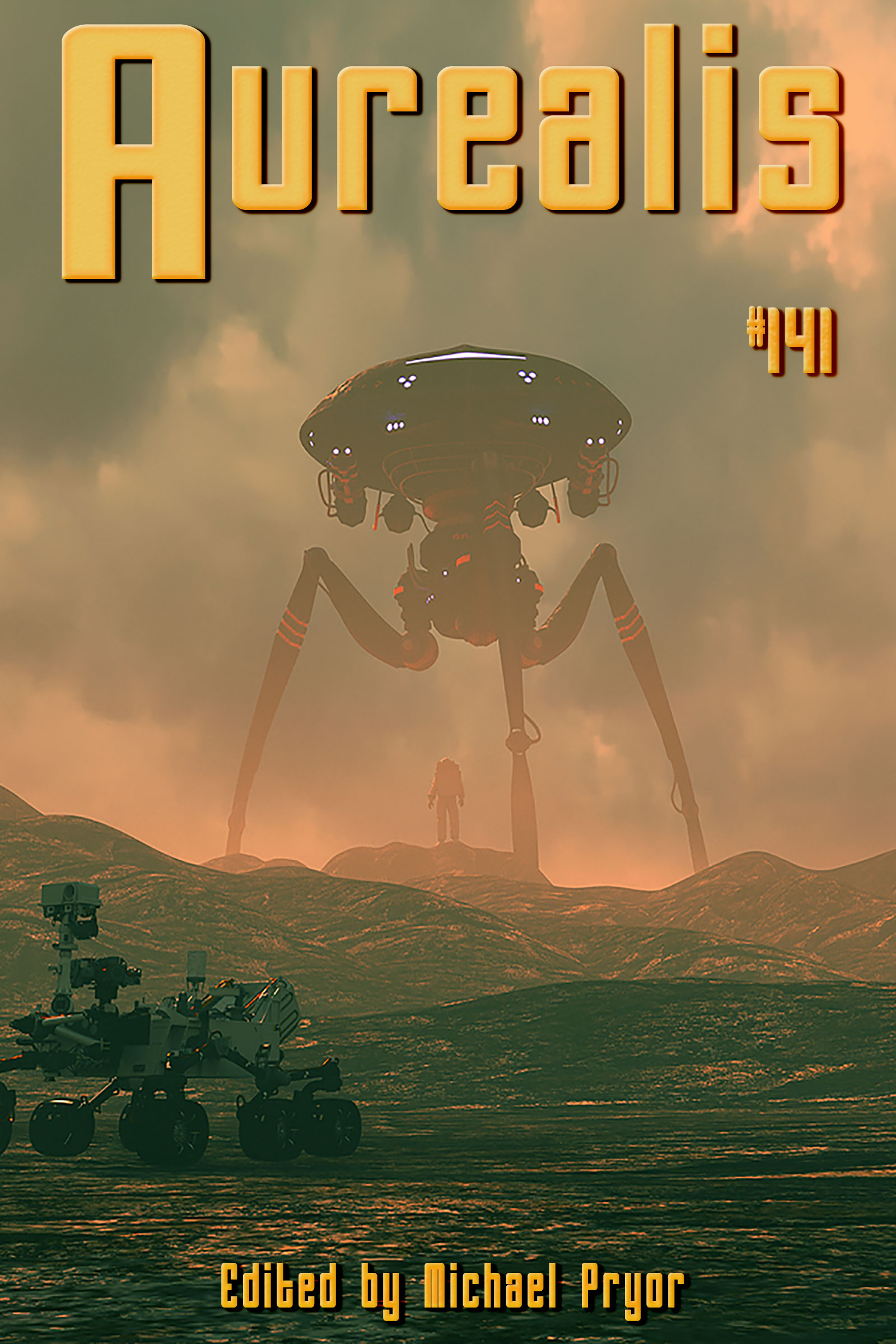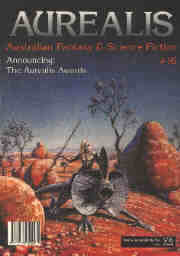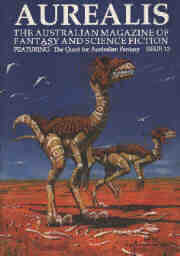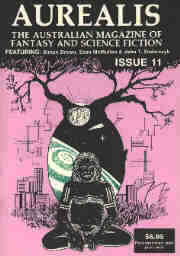Aurealis #141
$3.99
Aurealis #141 features stories from A. Marie Carter, Benjamin Keyworth and Andrew Knighton plus non-fiction from Amy Laurens, Eugen Bacon and Ani White. Don’t forget our extensive reviews and stunning internal art! Aurealis, second to none!
- From the Cloud — Michael Pryor
- Holes, Mountains, Ravens — A Marie Carter
- The Void — Benjamin Keyworth
- It Will Have Its Way — Andrew Knighton
- Unicorns: Strength, Freedom and Awe Throughout History — Amy Laurens
- On Slipstream: A Personal View — Eugen Bacon
- Tell Me Why: Trans Representation, Interactive Drama and Memory Mechanics — Ani White
After a recent trip to the chemist we’ve become convinced that the pharmaceutical industry has hundreds of Fantasy writers working for it.
We’re not sure if this has been a deliberate policy of recruiting down-at-heel Fantasy writers whose last trilogy was cut short after Book 2 or if hordes of canny Fantasy writers have seen an opportunity to ply their craft in an area of untold riches, but there is little doubt that the language of Fantasy is everywhere you look in the names of over-the-counter medications.
Consider Voltaren, for instance. It may be a handy cream for bruises and muscle pain, but it sounds as if it could be the name of a venerable mage of great power who is troubled by actions in his past that were prophesied by a wise woman of whom he took insufficient notice, the fool.
Here are some more:
Allerfexo. A bard, and possible comic relief. Known for his ribald versification and is likely to have his head cut off after offending some noble or other.
Mylanta. Possibly a place name, a far-off land of beauty and many lakes, ruled by a queen who is both just and fair.
Gaviscon. Rugged, but internally tortured, main character. Stolid, taciturn, loyal. Not dull, though.
Flixonase. Companion to the rugged, but internally tortured, main character. Humorous. Possibly plays the flute.
Hirudoid. A warrior tribe in a distant land—‘the fierce and unrelenting Hirudoid’.
Claratyne. Another place name, possibly in the mountains and featuring many towers. ‘To see the spires of Claratyne is to see the heights of creation.’
Telfast. An innkeeper. Wears an apron. Fat.
Lamisil. A sorceress of formidable power, the dread Lady Lamisil. She has a notable laugh that probably drives men mad.
Finalgon. A lesser wizard. Appears once in the story and then is never heard of again.
Zovirax. Evil. Wizard, warrior, doesn’t matter—is simply evil. Bound to be, with a Z and an X in his/her name.
Vosol. A soldier. Brave, loyal, accompanies the main character into dangerous territory and dies for his trouble.
Alcon. Possibly a city—‘brawling, bustling, breathtaking Alcon’. Possibly a thief—‘nimble-fingered Alcon, to whom no lock is barred. Possibly a river—‘swift and deep the mighty Alcon ran, league to league, through forest and mountain, from the plains to the sea, unmatched in its breadth and wetness’.
Savlon. A city. Not a very interesting one.
Coloxyl. A villainous duke. Oily, ingratiating, sinister, and sports a sensational goatee.
Dulcolax. Another villainous duke? Not as villainous as Coloxyl. Good with money, though.
Sorbolene. ‘Ah, Sorbolene, fair Sorbolene, the fair and star-eyed elvish queen! She makes this world both kind and clean, does hygienic Sorbolene!’ Or similar.
Imodium. Another city, most likely with a fortress that will be besieged by the ravening hordes of evil. Has impressive walls.
Combantrin. The dark and doom-wracked warrior overlord, Combantrin both stalks his fate and fears it. Whatever that means.
Is it any wonder that wandering around today’s chemist is like entering a grand, epic, sweeping tale of good versus evil, where vast magics are unleashed and brave goatherds are revealed to be the rightful heir to the throne after their courageous and self-sacrificing deeds.
Thank you, Big Pharma.
All the best from the cloud!
Michael Pryor
From Holes, Mountains, Ravens by A Marie Carter:
Digging the hole is easy. It’s the screaming that’s the hard part.
From The Void by Benjamin Keyworth:
The dome bustles.
Two hundred feet high and that again around, it extends in an unbroken arc of thick glass, stainless and clear and uniformly dimpled through with hexagonal facets. Afternoon light streams through its westward side, tinting gold the marble floors and stairs and suffusing the Temple with an irresistible feeling of warmth. The cars outside throw irregular shadows as they fly overhead—the muffled sounds of their rushing blending into the noise of the people, the easy flow of well-dressed, smiling folk. Beyond the dome the city gleams, the afternoon reflecting orange in high-rise windows. Beautiful, almost inspiring; but the man takes no heed.
From It Will Have Its Way by Andrew Knighton:
Say what you would about East Berlin—and after two years Jo had a lot to say—but at least the men here were too scared to misbehave. Back in the States, every veteran thought his service gave him the right to get between her legs, and any man who’d stayed home was over-compensating for it. Never mind that Jo had risked more than any of them, playing native among her Grandma Kleiber’s people, praying not to fall foul of any of the smart Nazis.
From Unicorns: Strength, Freedom and Awe Throughout History by Amy Laurens:
The history of the unicorn (in the general sense of an elusive, single-horned beast) has as many twists as the modern-day representations of its horn. For centuries believed to be a real creature, written about in non-fiction bestiaries and scientific literature, the eventual collective realisation that the unicorn as a distinct, naturally occurring species does not exist did little to dampen unicorn fever. If anything, the more evidence we have collected that the unicorn is a creature entirely invented by humanity, the deeper our collective obsession with it has become.
From On Slipstream: A Personal View by Eugen Bacon:
There’s no manual on slipstream fiction. Think of it as fiction that abandons genre. ‘Slipstream’ is a term believed to have originated from American author Bruce Sterling in 1989 to denote obscure stories that are neither mainstream nor genre science fiction (SF). Half-hearted, or in exasperation, the Encyclopedia of Science Fiction (www.sf-encyclopedia.com) deems slipstream SF ‘in part as a pun on, or echo of, Mainstream—to designate stories which make use of sf devices but which are not Genre SF’
From Tell Me Why: Trans Representation, Interactive Drama and Memory Mechanics by Ani White:
Tell Me Why (2020) is a pathbreaker for trans representation in games, and a generally compelling piece of interactive drama. Although a number of smaller indie games have featured trans leads, this is the first game from a major publisher to have an openly trans lead (being published by Microsoft on Xbox and PC, although produced by mid-size indie developer DONTNOD). Tell Me Why‘s strengths also include its depiction of various socio-political issues, and its use of game mechanics to explore unreliable memory.





